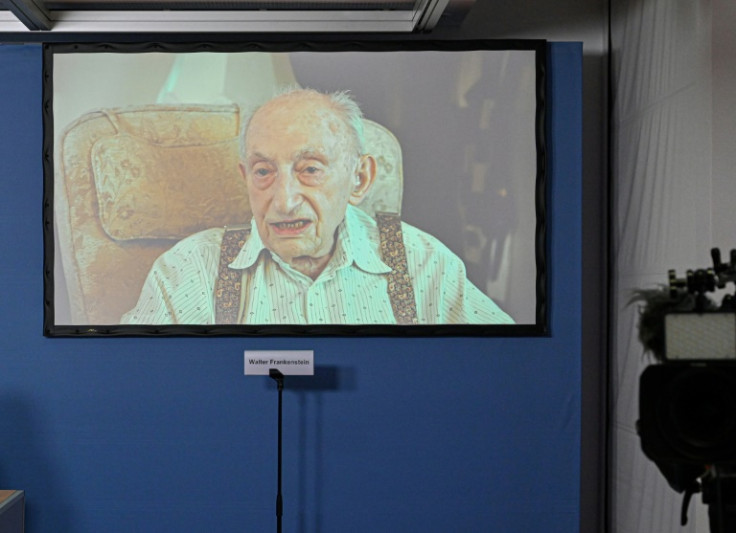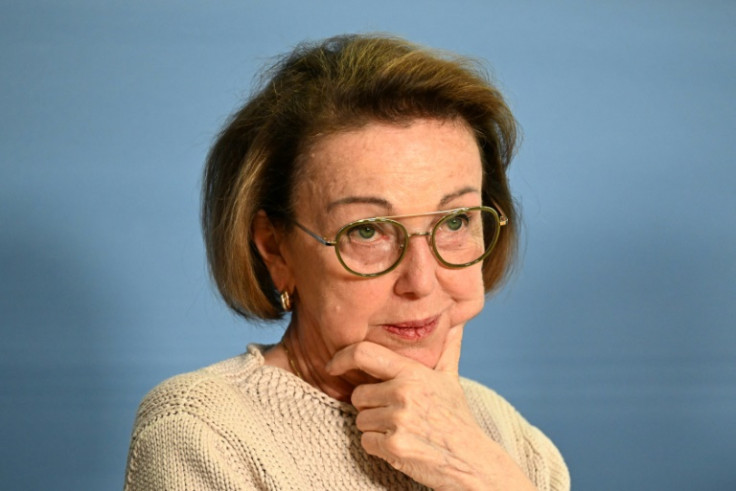
The German far-right AfD party has "a lot in common" with the Nazis in the 1930s, according to 95-year-old Ruth Winklemann, who recalls having to hide in a shed with her mother after her father was sent to Auschwitz.
She is one of a group of Holocaust survivors that Tuesday published an open letter urging young voters to cast their ballots against the resurgent far right in the upcoming EU elections.
"For millions of you, the European elections are the first election in your lives. For many of us, it could be the last," the eight men and women aged 81 to 102 wrote in the letter unveiled in Berlin.
"We couldn't stop it back then. But you can today," they wrote.
The 2024 European Parliament elections are projected to see a major shift to the right in many countries, with populist radical right parties gaining votes and seats across the EU.
In Germany, the far-right AfD looks set to win around 15 percent of the vote despite being buffeted by a series of scandals.
Winkelmann said she had signed the letter "because the AfD is becoming too strong".
The German far-right party has "quite a lot in common" with the Nazis in the 1930s, who were also "against other people who are different", she told AFP.
"As a democrat, you should recognise everyone, whether green, white or black, it doesn't matter. Whether you're short or tall, you can live together and have respect for everyone," she said.
Born to a Jewish father and Protestant mother who converted to Judaism to marry him, Winkelmann recalled seeing the smashed windows of Jewish shops on her way to school as a child in 1930s Berlin.
After her father was deported to Auschwitz in 1943, Winkelmann hid from the Nazis with her mother and sister in a shed on an allotment plot.
"When the war was finally over, I fell into my mother's arms and we shouted for joy, 'We've survived, now we're free,'" Winkelmann said.
That freedom "cannot be taken for granted", she said.
Walter Frankenstein, who is 99 years old, also drew parallels between the current political climate in Germany and the conditions that paved the way for the rise of Adolf Hitler.
"It was exactly the same then as it is now," he said via a pre-recorded video message, recalling the "weak democratic government and a party that rallied people who were dissatisfied".
All three parties in German Chancellor Olaf Scholz's fragile coalition of the Social Democrats, Greens and liberal FDP have struggled in the polls ahead of the EU vote, while the AfD has been capitalising on frustration over inflation and immigration issues.
Frankenstein was sent to a Jewish orphanage in Berlin at the age of 12.
He later trained as a mason at a Jewish school and dreamed of becoming an architect but in 1941 he was enlisted into forced labour and repeatedly threatened with deportation.
He and his wife Leonie eventually went into hiding with their two young children and survived the final days of the war in late April 1945 in a public bunker.
"Young people today must not just say, 'I don't know who to vote for, so I won't go at all.' That's the worst thing you can do. Our democracy must be defended again and again," Frankenstein said.
Eva Umlauf, 81, was two years old when she and her mother were liberated from Auschwitz.
Umlauf told journalists how they arrived at the camp in November 1944 from Slovakia, just days after the Nazis had stopped gassing prisoners to death.
"I wear the number that was burnt into my forearm in Auschwitz as a reminder, as a reminder of another time. A time that must not come again," she said.
Leon Weintraub, 98, who spent much of his youth in various concentration camps, also warned that history must not be allowed to repeat itself.
"Four out of five of my closest relatives... were murdered. That is the consequence... of these radical thoughts, of looking down on others, of xenophobia," he said.
A study in January by the Claims Conference, an organisation that seeks damages for Holocaust survivors, found that their numbers worldwide had dwindled to 245,000, with a median age of 86.









